By: Nawaf Rahman
Getting his hands dirty (literally), RSPO Social Media Senior Executive Nawaf Rahman journeys to Sabah to immerse in the world of regenerative agriculture with Wild Asia.
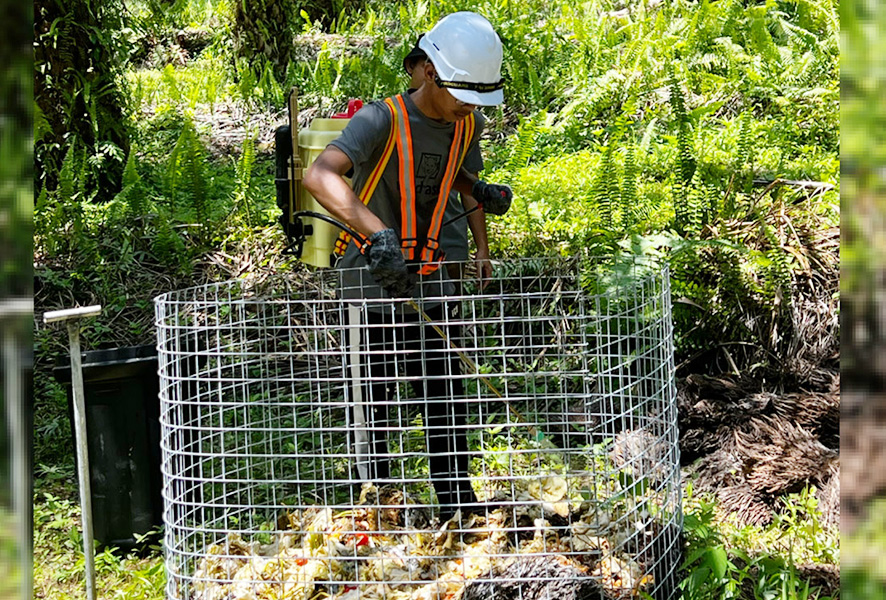
© Wild Asia, 2024
As I stepped off the plane in Sandakan, Sabah, the humid air thick with possibility, I knew this wasn’t just another trip. I was here to get my hands dirty—literally—in the world of regenerative agriculture within sustainable palm oil production. With Wild Asia, a non-profit organisation dedicated to promoting sustainable practices as my guide, this wasn’t just about learning; it was about experiencing firsthand how we can tackle some of our planet’s most pressing ecological challenges.
In a world teetering on the brink of environmental catastrophe, the call for sustainable practices and resource efficiency has never been more urgent. One of the greatest threats to our planet is ecosystem destruction, with unsustainable agricultural practices being one of the main culprits. However, innovative approaches are emerging to address these issues.
Enter the Wild Asia Group Scheme (WAGS) BIO programme, production system designed to enhance soil health, plant growth, and yields. It focuses on improving soil organic matter and microbiology, aiming to restore fertility and produce healthier, more resilient palms with higher fresh fruit bunch (FFB) yields. It guides farmers in adopting sustainable practices by replacing agro-chemicals and non-organic fertilisers with organic, biodynamic, and regenerative methods.
WAGS BIO Programme
Since 2010, Wild Asia, an RSPO Member, has field-tested and established WAGS for independent producers. The objective is to build sustainable practices across the entire palm oil supply chain and help smallholders meet zero deforestation while improving their productivity. This approach has enabled many independent small producers to achieve RSPO and Malaysian Sustainable Palm Oil (MSPO) Certifications. Building on this success, WAGS BIO was created to unlock the next level of sustainability.
“After achieving RSPO Certification, we asked ourselves: What’s next? What new sustainable practices can we introduce to help them progress?” says Peter Chang, Technical Advisor at Wild Asia and one of the driving forces behind this programme. “These questions led us to create WAGS BIO.”
Putting Soul Back in Soil
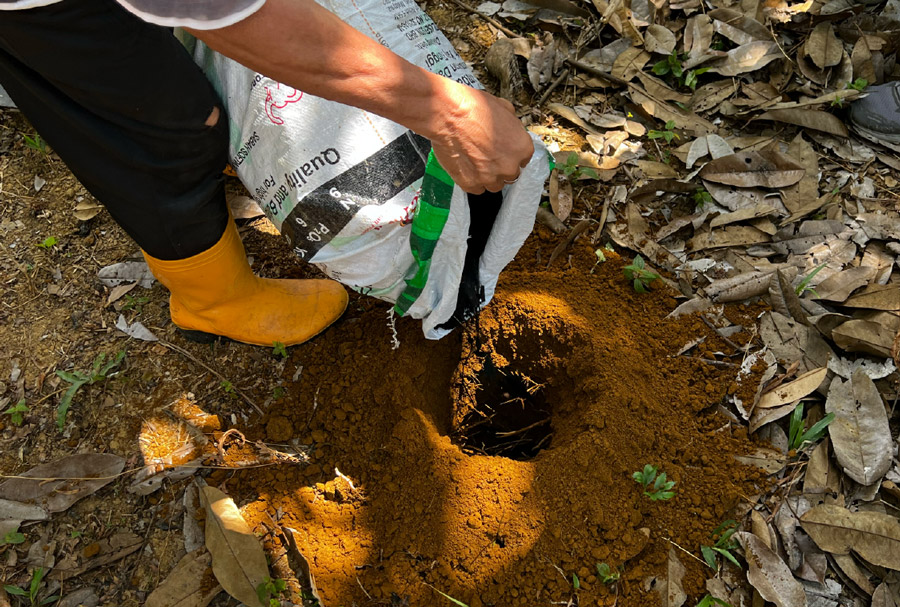
© Wild Asia, 2024
A key practice is the use of biochar, a form of charcoal produced in low-oxygen environments. Biochar improves soil fertility by enhancing water and nutrient retention, balancing soil acidity, and promoting beneficial microorganisms. Farmers convert oil palm waste into biochar, which serves as a natural soil amendment, leading to increased yields, improved soil quality, and greater farm profitability. Affordable and scalable, biochar technology has a significant environmental impact—each tonne of biochar produced stores approximately 2 tonnes of CO2 equivalent in the soil for 75-100 years.
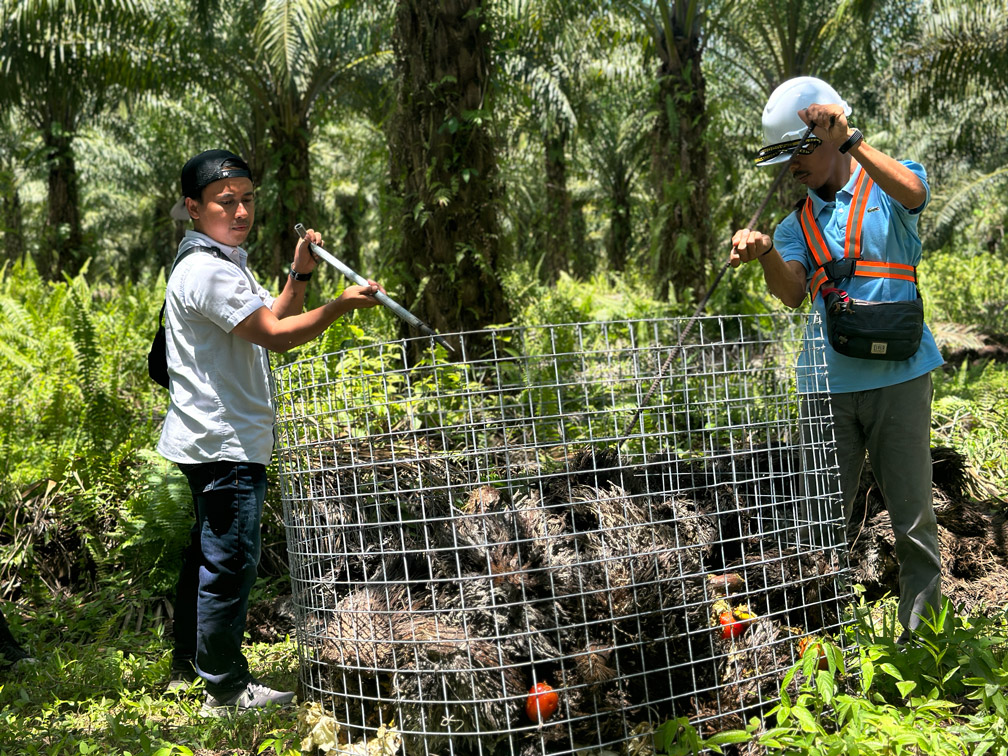
© Wild Asia, 2024
Another innovative practice is the use of bio-enzyme, a natural fertiliser rich in beneficial bacteria and enzymes. Farmers learn to create this by fermenting organic materials like rotting fish, grass clippings, or fruit in water. The resulting solution enriches the soil, promoting healthier plant growth. They’re also taught in-situ composting using green waste, such as excess vegetables, recycling mill wastes like oil palm decanter cake and empty fruit bunches, spraying bio-enzyme to aid decomposition.
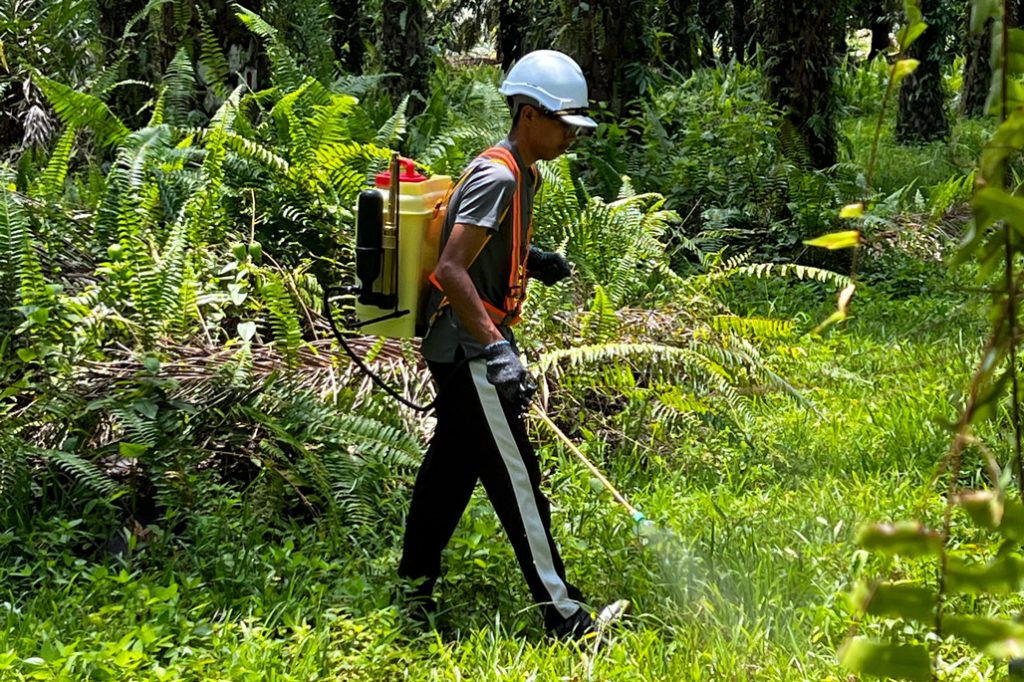
© Wild Asia, 2024
As I examined soil samples from both areas, the differences were striking. The BIO block’s soil was dark and rich, teeming with visible microorganisms and fungal networks. It felt alive in my hands and had a sweet, earthy aroma.
We visited one of the WAGS BIO oil palm farms divided into two blocks: a “BIO block” using BIO farming techniques, and a “conventional block” following standard practices. As I examined soil samples from both areas, the differences were striking. The BIO block’s soil was dark and rich, teeming with visible microorganisms and fungal networks. It felt alive in my hands and had a sweet, earthy aroma. This diversity in the soil ecosystem promotes efficient nutrient cycling, enhances natural pest resistance, and significantly increases carbon sequestration. In sharp contrast, the conventional block’s soil was lighter, yellowish, and seemed less vibrant. It lacked the same texture and smell of its organic counterpart. This side-by-side comparison provided compelling evidence of how different farming practices profoundly impact soil health in palm oil production.
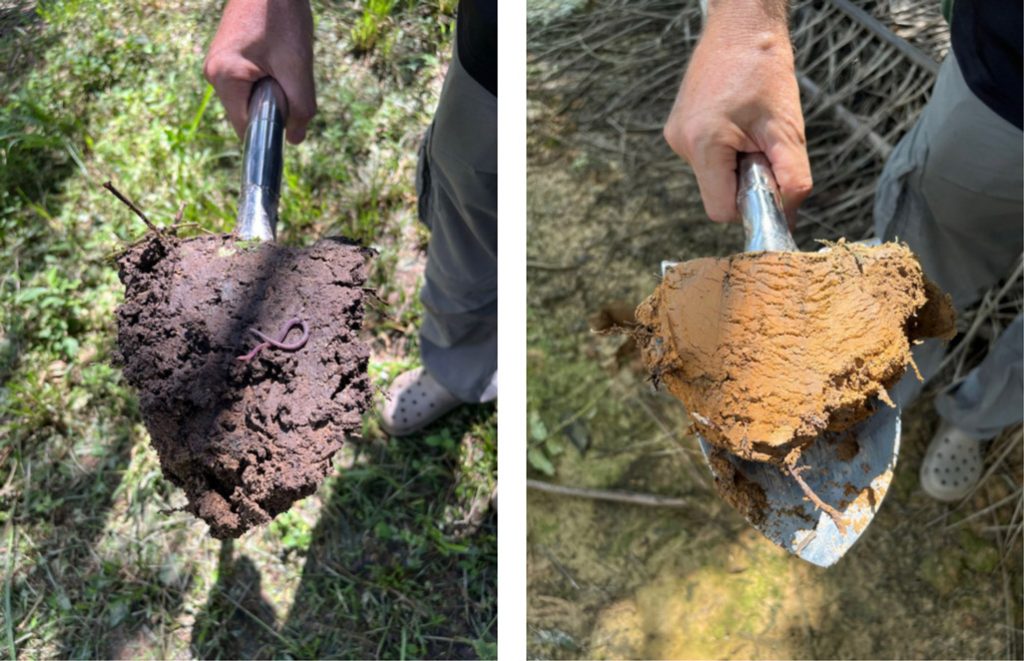
Comparison of the BIO block’s soil (left) and the conventional block’s soil (right).
© Wild Asia, 2024
“We’re bringing life back to dead soil using organic matter, enzymes, bacteria, and active fungi that farmers can easily make and spray. Within three years, soil life returns, and in about ten years, you can have good living soil. This supports palms in producing more, bigger, and heavier fruits, increasing yield and farmer income,” says John Howes, Wild Asia’s technical advisor.
Peter notes this programme is specifically for farmers who have already been certified by RSPO. This leads to a question: How does RSPO Certification help implement this programme?
“We insist on taking them through the certification process first—it demonstrates a certain level of commitment. This foundation of good practices allows us to take them to the next level with the WAGS BIO programme,” Peter explains.
Meeting Sabah Smallholders
WAGS BIO farmers have been reaping the benefits of the projects in terms of increased profit, alternative sources of income, lower costs, and high productivity yields.
I met Goldfred and Trenner, who were among the first 42 independent smallholders certified by RSPO in Beluran, Sabah, in 2013, a significant milestone in Malaysia. As one of the earliest WAGS BIO farmers that started in 2020, they’ve pioneered sustainable oil palm farming practices.
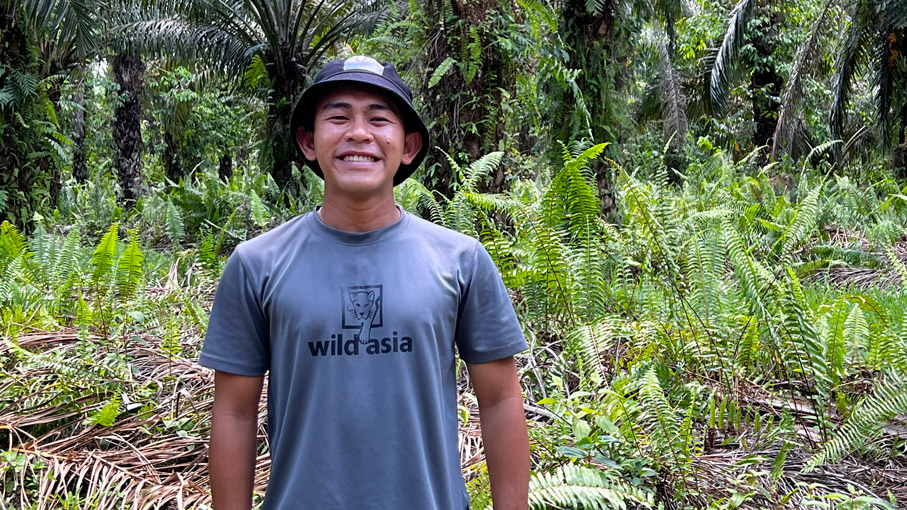
© Wild Asia, 2024
“Through this programme and RSPO Certification, I gained knowledge on avoiding financial loss and preventing environmental damage by using bio-enzyme as the natural fertiliser while maximising productivity. This ensures everyone benefits—the ecosystem is preserved, and livelihoods are improved,” shares Trenner.
“Using biochar and spreading palm fronds around the inner circle palm, as taught by WAGS BIO, improves soil quality and fertiliser efficiency. I’ve learned that increased productivity and higher income can be achieved sustainably, without additional costs,” adds Goldfred.
No Cookie-Cutter Approach
This trip revealed a crucial insight: with proper technical support, training, extension services, and management, smallholder farmers have the potential to increase production and meet sustainable certification requirements. However, a one-size-fits-all approach is ineffective, and simply teaching farmers about sustainability is unlikely to succeed. Sustainable practices require a fundamental shift in mindset.
For WAGS BIO to be effective, building relationships with individual farmers is essential. What makes this project unique is that the WAGS support team is made up of the smallholders’ community and they may even own an oil palm farm. They don’t judge existing practices nor other smallholders’ actions. On the contrary, they assist them in addressing problems and make recommendations on relevant sustainable practices.
The Road Ahead
While initiatives like WAGS BIO show that sustainable practices can be economically beneficial, scaling these practices, overcoming resistance, and ensuring consistent implementation require ongoing effort and investment.
Despite these hurdles, the success of WAGS BIO in Sabah provides a compelling model for the future of sustainable palm oil production. As I left Sandakan, I carried with me not just new knowledge, but a renewed sense of hope. With innovation, commitment, and a willingness to reimagine traditional agricultural practices, even the most challenging industries can be steered towards a more sustainable future.
About the author: Nawaf Rahman is a Senior Executive, Social Media and Content Writer for the RSPO Communications team. To get in touch, email: [email protected].
Keep reading

Book Your Slot for the Additional prisma Clinic Session at RT2025

Advancing Jurisdictional Certification in Sabah: Strengthening Collaboration Between RSPO, UNDP, and Jurisdictional Approach System for Palm Oil (JASPO)
Call for Expression of Interest: Independent Investigation of a Complaint

Leading Labels: RSPO Among Top Sustainability Labels in Dutch Market

The 21st International Oil Palm Conference Successfully Took Place in Cartagena, Colombia

Top Performers of the 2025 Shared Responsibility Scorecard

ACOP 2024: RSPO Market Trends Resilient Despite Global Challenges

RSPO: Actions for the Certification of Sustainable Palm Oil Production




